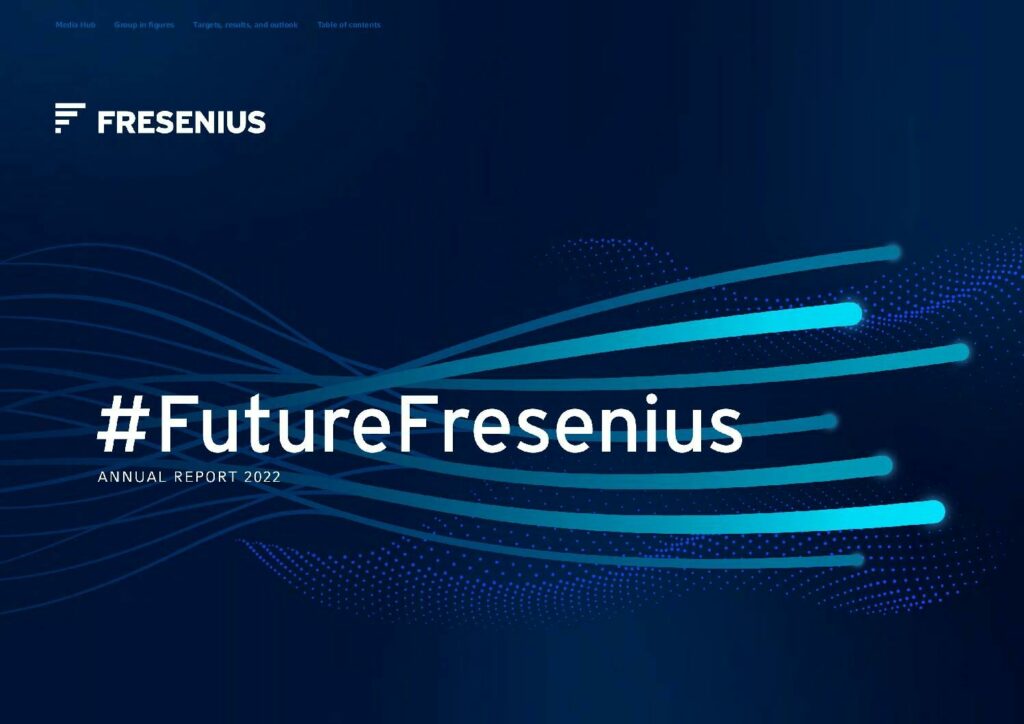GRI 2-12, 2-26, 2-29, 2-30, 407/3-3
Exchange with employee representatives
Trust and cooperation between management, employees, and employee representatives is well established at Fresenius and is an integral part of our corporate culture. An open and ongoing dialog between management and employee representatives, as well as unions, is important to us.
Fresenius acts responsibly toward its employees. This is detailed in our commitment to respect the international standards mentioned in our Code of Conduct and our Human Rights Statement. Fresenius SE & Co. KGaA respects freedom of association and recognizes the right to collective bargaining. Employees have the right to join or not to join a union in accordance with local laws. We do not tolerate discrimination based on trade union membership and act accordingly. We are committed to an open and solution-oriented dialog between employees and their representatives, and our management within the relevant legal and operational frameworks. For more information, see the Human rights section.
Employees liaise with their supervisors, but they can also turn to their HR or compliance officers, as well as to the works council, their union representatives, or other employee representatives for assistance. In Europe, about 79% of our employees are covered by collective bargaining agreements. In some European countries, Fresenius is subject to industry-related collective agreements, e. g., in France, which are binding by law due to the industry to which we are affiliated. Where this is not the case, country-specific collective bargaining agreements can be negotiated with local trade unions or comparable social partners. On a global basis, about 55%1 of our employees are covered by collective bargaining agreements.
In European countries, workplace representation bodies are organized according to national law. The business segments have overall responsibility for dealing with local employee representatives and trade unions at country or site level. Our discussions with these representatives focus on local and regional circumstances. Together with the employee representatives, we aim to find tailored solutions to the challenges in the different locations. Further information is included in the business segment sections.
Fresenius has reached an agreement with the European Works Council (EWC), establishing a structured dialog with the global unions; meetings are subsequently held once a year between representatives of the business segments, the employee representatives of the Supervisory Board, and representatives of the international trade union associations. In the reporting year, the meeting took place in November. The exchange was about activities relating to human rights due diligence and reorganization processes and impacts on employees in the Group.
1 Based on about 92% of Fresenius Group total employees.
Dialog at European level
Fresenius SE & Co. KGaA has a EWC comprising 21 employee representatives from 14 countries as of December 31, 2022. These individuals come from the European Union (EU) and EEA (European Economic Area) member states in which Fresenius employs personnel. In total, the Fresenius Group employs 181,017 people in Europe, which corresponds to 57% of the total number of employees. Of the employees in Europe, Germany alone accounts for 55%.
The EWC is responsible for the participation of Fresenius employees in cross-border measures, insofar as these have a significant impact on the interests of Fresenius personnel and affect at least two countries within their area of responsibility, such as the relocation or closure of companies or collective redundancies. The management informs and consults with the EWC on the following topics, for example: the structure as well as the economic and financial situation of the Group, its anticipated growth, employment situation, investments, organizational changes, and the introduction of new work and production processes. The EWC meets once a year, while its executive committee convenes three times a year, partially in hybrid form due to the COVID-19 pandemic. The European trade union federations IndustriALL and the European Federation of Public Service Unions (EPSU) attend the meetings at the invitation of the EWC.
The focus topics of the EWC in the past fiscal year were projects in the Group’s business segments for reorganization, e. g., in the area of global HR management, the digital transformation, the Group-wide cost and efficiency program, and compliance matters relating to the Group’s human rights declaration, sustainability and corporate social responsibility (CSRCSR (Corporate Social Responsibility)CSR refers to the social responsibility of companies. Their operations can affect economic, social, and environmental conditions all over the world.). In 2022, the EBR also discussed the global engagement survey as well as international projects, such as those in logistics or the supply chain. Another focus area was the impact of the COVID-19 pandemic and the war in Ukraine on Fresenius’ employees. To this end, an exchange of information took place on the situation in the individual countries.
At its annual meeting, the EWC entered into a dialog with the Management Boards of Fresenius Kabi, and Fresenius Medical Care.
The EWC elected six employee representatives to the Supervisory Board of Fresenius SE & Co. KGaA, including at least one representative of the trade unions.

